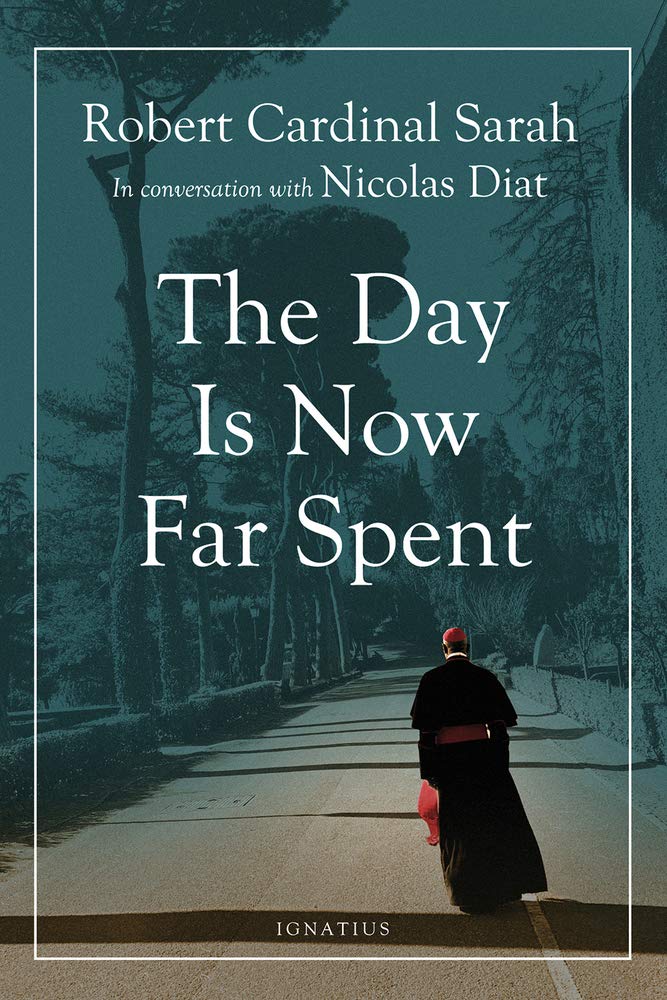 The Day is Now Far Spent was published a few months ago. In it, Guinean Cardinal Robert Sarah, currently Prefect of the Congregation of Divine Worship, gives his reading of the situation of the world—especially the West—and the Catholic Church today.
The Day is Now Far Spent was published a few months ago. In it, Guinean Cardinal Robert Sarah, currently Prefect of the Congregation of Divine Worship, gives his reading of the situation of the world—especially the West—and the Catholic Church today.You can find the book in paper and kindle editions as well as on audio. There are several excellent reviews of the book such as this one, as well as this excellent introduction by the interviewer-interlocutor of the book, Nicolas Diat.
The title is based on Lk 24:13-35 which you can read in full here:
[...]While they were talking and discussing together, Jesus himself drew near and went with them. But their eyes were kept from recognising him. And he said to them, “What is this conversation which you are holding with each other as you walk?” And they stood still, looking sad. Then one of them, named Cle′opas, answered him, “Are you the only visitor to Jerusalem who does not know the things that have happened there in these days?” And he said to them, “What things?” And they said to him, “Concerning Jesus of Nazareth, who was a prophet mighty in deed and word before God and all the people, and how our chief priests and rulers delivered him up to be condemned to death, and crucified him. But we had hoped that he was the one to redeem Israel... And he said to them, “O foolish men, and slow of heart to believe all that the prophets have spoken! Was it not necessary that the Christ should suffer these things and enter into his glory?” And beginning with Moses and all the prophets, he interpreted to them in all the scriptures the things concerning himself. So they drew near to the village to which they were going. He appeared to be going further, but they constrained him, saying, “Stay with us, for it is toward evening and the day is now far spent”[...]
Cardinal Sarah speaks about the crises afflicting faith, priesthood, the Church and the West on a larger scale. He speaks about life, religious freedom, the family, liberal democracy, from an unusual perspective for Western readers, a viewpoint which is both hopeful and daring, straightforward and deep. For instance when asked what the most needed virtue for our times is, he responds by pointing out to the virtue of religion—the sense of the sacred.
The book is not a structured development of topics in a logical order, but follows an informal, conversational style. However it is insightful, and remarkable in the way it uses faith and reason together to approach each of the topics.
The Day is Now Far Spent is a frank reading of a complex, structural crisis affecting the West and its sphere of influence. It is, at the same time, a fresh breath of hope solidly grounded on Scripture, Tradition and Magisterium—the key elements of the Catholic worldview—for anyone prepared to take it in. Definitely worth reading.
To join our mailing list or for any questions/comments click here.



